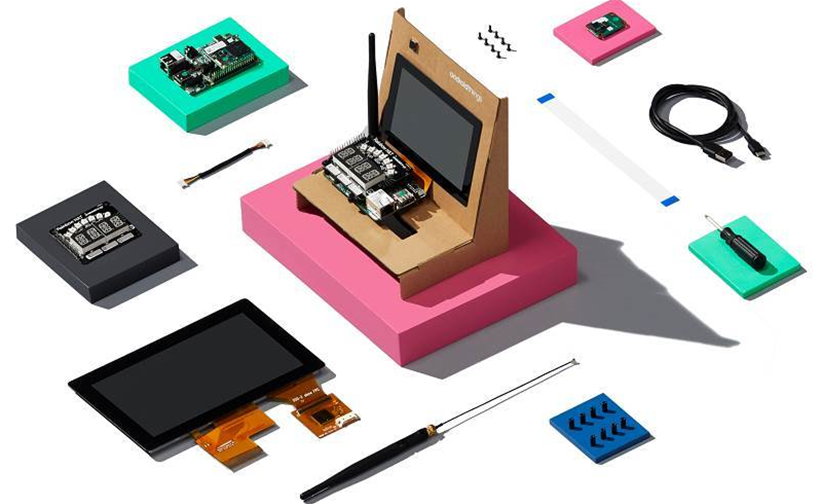Google has released a production version of Android Things, a cut-down version of Android designed for IoT devices that has been in development for the past three years. It is reported to work on devices with as little as 32MB of memory.
Android Things was first revealed in December 2016 but debuted at Google’s developer conference, Google I/O in May 2105 as Project Brillo, and featured in the recent 2018 Google I/O.
Availability of the production version, Android Things 1.0, was announced by Dave Smith, Google Developer Advocate for IoT, in a blog post.
Android Things 1.0 addresses one of the biggest complaints about IoT devices: operating system software that, unlike PC software, is not readily patchable to eliminate the security vulnerabilities that are, inevitably, discovered and exploited.
“Stability fixes and security patches are supported on production hardware platforms, and automatic updates are enabled for all devices by default,” Smith says.
Google will offer free stability fixes and security patches for three years and additional options for extended support. “Even after the official support window ends, you will still be able to continue to push app updates to your devices,” he says.
Google provides the Android Things Console to install and update Android 1.0 on supported hardware devices. However, use of the Android Things Console for software updates is limited to 100 active devices for non-commercial use. Developers who intend to ship a commercial product running Android Things must sign a distribution agreement with Google to remove this device limit.
Google has also announced that Android Things 1.0 will support a number of System-on-Modules (SoMs) based on the NXP i.MX8M, Qualcomm SDA212, Qualcomm SDA624, and MediaTek MT8516 hardware platforms.
“These modules are certified for production use with guaranteed long-term support for three years, making it easier to bring prototypes to market,” Smith says.
He said the software development kit for Android Things had been downloaded more than 100,000 times and more than 10,000 developers had provided feedback on earlier versions during the development process.
Several companies have announced commercial products based on Android Things 1.0. These include smart speakers from LG and iHome and smart displays from Lenovo, LG, and JBL.
Smith also lists prototype ideas for a diverse set of use-cases based on Android Things: Byteflies, a docking station that securely transmits wearable health data to the cloud; and Mirego, a network of large photo displays driven by public photo booths in downtown Montreal.







